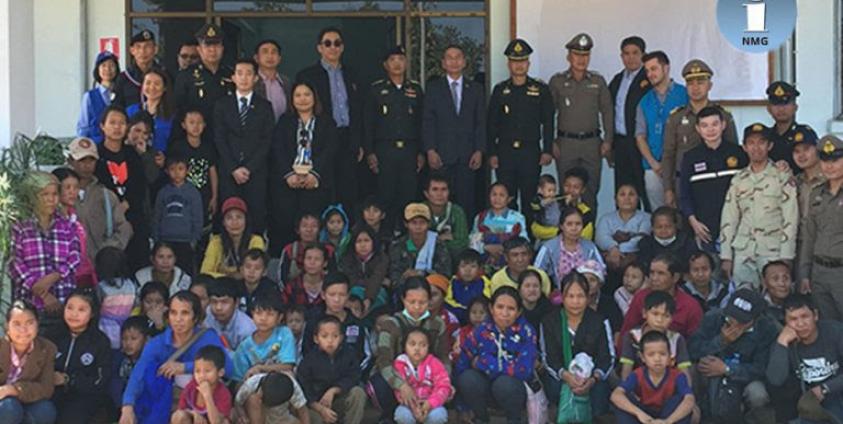Fifty-nine refugees from Thailand’s Karenni Camp No. 1 in Ban Mai Nai Soi went back to Burma on Thursday.
The refugees—38 adults and 21 children from 15 families—were part of the UN High Commissioner for Refugees’ (UNHCR) voluntary return program, and left Thailand through the BP-13 border gate.
“The UNHCR collected a list of refugees who were willing to volunteer to return home,” said one Karenni refugee in the camp, who explained that the ones who opted to return were sent to the Karenni State capital of Loikaw through Maese Township on the Thai border. “Then these refugees will be sent to their native villages again,” the individual added.
UNHCR officials, Thai authorities and officers from the International Organization for Migration and representative from the Burmese consulate in Chiang Mai U Thein Tin were part of their sendoff.
“I am not afraid to return home. I am going back to my native village. I will work as a farmer,” Kay Si, who is 52 years old and lives in Hpasawng Township, told NMG.
The Karenni State chief minister was among those who welcomed them in a ceremony upon reaching Maese town.
The UNHCR provided each returning adult with 9,300 baht (US$296) and each child with 7,500 baht ($239), as well as food assistance.
More than 130 Karen refugees also returned to Burma through the Thai-Myanmar Friendship Bridge on Wednesday, sent to Kyauk Lon Gyi in Myawaddy Township.
According to the UNHCR, in the next batch of returnees—575 refugees—will go back to Burma through the Myawaddy gate in Karen State and Maese border gate in Karenni State.
Karenni refugees fled to Ban Mai Nai Soi, Ban Mae Sariang, Ban Mae La Oo and Ban Mae La Mart in Thailand after clashes intensified between the Burma Army and Karenni forces in 1984. Some have since resettled to a third country.
There are nine refugee camps along the Thai-Burma border housing around 100,000 people. The UNHCR has worked with Thai authorities since 2016 to implement a voluntarily return program by opening consultation centers in the camps.
The first return involved 19 families from Nu Po camp in October 2016. The second batch of returnees totaled 93 people from five camps in May of 2018.
The majority of refugees in the border-based camps have opted not to return to Burma, citing continued political insecurity, loss of land, the presence of landmines, a lack of rights protection, and increased militarization.







